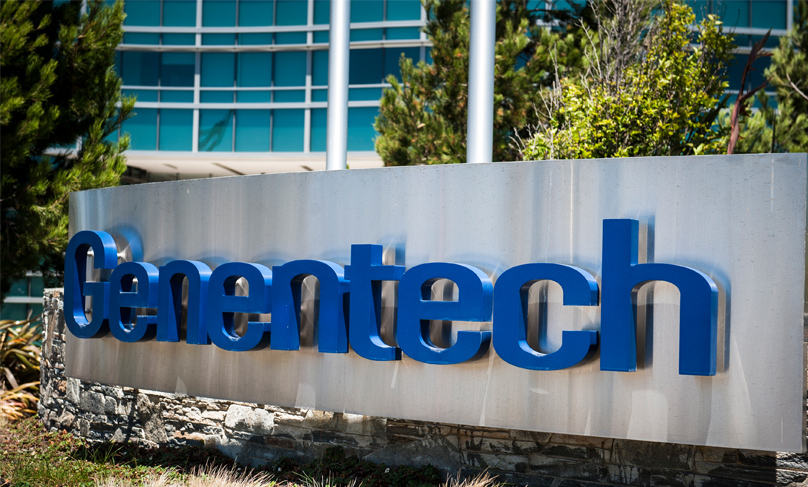Roche hops on Bicycle’s drug discovery platform for cancer

Roche’s recent spate of billion-dollar plus alliances has continued with a deal with UK biotech Bicycle Therapeutics – worth up to $1.7 billion – in the area of cancer immunotherapy.
The agreement is firmly geared towards the back end with an upfront fee of $30 million that gives Roche’s Genentech unit a buy-in to Bicycle’s bicyclic peptide drug discovery platform across a range of immuno-oncology targets.
The UK company says its bicyclic peptides or ‘bicycles’ have targeting properties that are similar to those of monoclonal antibodies, but act more like small-molecule drugs, which makes it easier for them to be manufactured, dosed and reach target tissues in the body.
The time the peptides stay in the body can also be fine-tuned, allowing for precise control of drug exposure, says the company, which notes none of its current pipeline of drugs are included in the deal.
The two partners will make use of Bicycle’s screening approach to identify bicyclic peptides that are active against drug targets, including novel targets nominated by Roche.
“Bicycles represent a novel therapeutic modality and have shown promise as modulators of several types of tumour-killing immune cells,” said Roche’s head of pharma partnering James Sabry, giving a hint of the direction the collaboration will take.
Bicycle is responsible for discovery and preclinical development of bicycles against “multiple targets”, with Roche taking over promising programmes once they advance to the clinical testing stage.
It’s the latest in a series of $1 billion-plus pipeline-building deals for Roche as it starts to feel the impact of biosimilar competition of its ‘big three’ antibody drugs Rituxan/MabThera (rituximab), Herceptin (trastuzumab).
Since the start of 2019, the company has signed a $2.85 billion partnership with Sarepta for Duchenne muscular dystrophy candidate SRP-9001 and a $2 billion alliance with Adaptive Biotech on T-cell receptor therapies for solid tumours.
It has also agreed a pair of two gene-silencing deals, including one worth $2 billion with Skyhawk Therapeutics focusing on cancer and neurological diseases, and another with Dicerna for hepatitis B virus drugs valued at $1.7 billion.
Meanwhile, Roche isn’t the first big pharma partner Bicycle has attracted for its bicyclic peptide technology. In 2016 it started a $1 billion tie-up with AstraZeneca to hunt for drugs that could be used to treat respiratory diseases, and extended that in 2018 to include cardiovascular and metabolic disorders.
It also has alliances with Oxurion in the area of ophthalmology, as well as with Cancer Research UK and the Dementia Discovery Fund.
The company’s lead in-house project is BT1718 – a bicycle toxin conjugate (BTC) drug that combines targeting of MT1-MMP on cancer cells with a cell-killing payload – which is being tested in a phase 1/2a trial in solid tumours sponsored by CRUK.
Following just behind is BT5528, described as a second-generation BTC targeting EphA2 which is also in a phase 1/2 study in advanced solid tumours.












